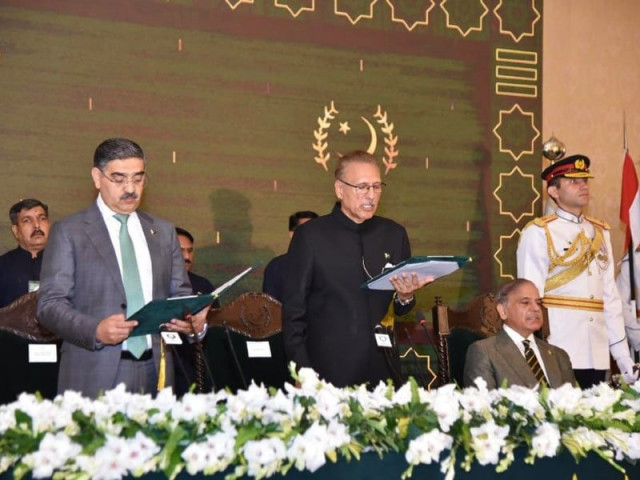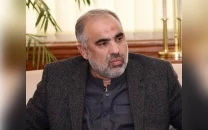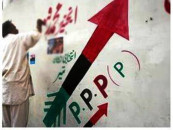Interim setup 'most empowered' in history
Acting govt will have unprecedented powers to supervise ongoing projects, make important policy decisions

The country is set to witness its most empowered interim setup ever with Caretaker Prime Minister Anwaarul Haq Kakar taking the reins as the eighth interim premier as the country prepares to navigate through a transitional period amid economic and political crises.
Kakar’s appointment comes under highly favourable circumstances, granting him unprecedented authority in the position.
Traditionally, the primary responsibility of the caretaker government has been to manage the day-to-day affairs of the country until the newly elected government assumes power. However, the interim government was empowered to take the role of economic stewardship after a joint parliamentary session on July 26 this year amended Section 230 of the Election Act, 2017.
The amendment now allows the caretaker government to exercise unusual powers pertaining to ongoing projects, and programmes, and even make crucial policy decisions, in addition to handling the regular affairs of the state.
As the country heads towards an interim government, it may not be a usual transitional government due to unprecedented political and economic challenges.
Above all, the interim government will also have to ensure compliance with the ongoing IMF programme. It is imperative, however, to take care of the commitments and assurances that the Government of Pakistan has given to the IMF during the last review.
Analysts have noted that the interim government may be in a better position to implement some of the committed policy actions that the current one may not feel comfortable with, due to the political cost of such actions.
Political analyst Hasan Askari Rizvi told AFP at the weekend that Kakar "has a limited political career and not much weight in Pakistani politics". "This can be an advantage because he has no strong affiliation with the major political parties."
"But the disadvantage is that being a lightweight politician, he may find it difficult to cope with the problems he's going to face without the active support of the military establishment."
Analyst Ayesha Siddiqa noted that Kakar had done courses at the National Defence University -- formerly the military's war college -- and said he would be close to the establishment. "It seems that the establishment has struck and they have found somebody who will be watching over their interests rather than that of politicians," she said.
Some analysts think the delay could give time for the main coalition partners -- the Pakistan Muslim League-Nawaz (PML-N) and Pakistan Peoples Party (PPP) -- to figure out how to address the challenge of Imran Khan’s PTI.
"But in reality, delaying the election could simply anger the public more and galvanise an opposition that has already suffered through months of crackdowns," said Michael Kugelman, director of the South Asia Institute at the Wilson Center.
Behind any election in Pakistan lurks the military, which has staged at least three successful coups since the country was forged from the partition of India in 1947.
Khan enjoyed genuine widespread support when he came to power in 2018, but analysts say it was only with the blessing of the country's powerful generals -- with whom he reportedly fell out in the months before his ousting.
For analyst Rasul Bakhsh Rais, Kakar is the "best possible choice given the circumstances" in Pakistan today.
"He is well educated and from a minority province, where the sense of deprivation is very high," he said, adding that another point in the new premier's favour is that he "doesn't carry much political baggage".
The first formation of an acting government in Pakistan took place before the 1990 elections, and subsequently, all elections held in the country until 2018 were under the supervision of caretaker governments. The only exception was the 2002 polls, which were conducted under the authority of military ruler Gen (retd) Pervez Musharraf's government without the formation of a separate caretaker setup.
For the first time in Pakistan's political history since the 1977 polls, there has been a demand for caretaker governments to oversee general elections. Thus far, a total of seven interim governments have been established, and the upcoming formation will mark the eighth.
Ghulam Mustafa Jatoi was the first caretaker prime minister of the country, serving from August 6, 1990, to November 6, 1990.
Mir Balakh Sher Mazari, the second caretaker prime minister, served from April 8, 1993, to May 26, 1993. He was the Mazari tribe’s 22nd ‘Sardar’ and seventh ‘Mir’.
Moeenuddin Ahmad Qureshi, a seasoned economist, held the position from July 18, 1993, to October 19, 1993. His tenure was marked by extensive reforms backed by an IMF standby arrangement, and a focus on tackling tax evasion and loan defaults – fostering a “payment culture”.
Malik Meraj Khalid, a philosopher and left-wing statesman, was the fourth caretaker prime minister, serving from November 5, 1996, to February 17, 1997.
He was appointed as the caretaker prime minister after the government of former prime minister Benazir Bhutto was dismissed in November 1996. His efforts to rally anti-Benazir forces contributed to the victory of Nawaz Sharif's PML-N in the 1997 elections.
Mohammedmian Soomro, the fifth caretaker prime minister, held the position from November 16, 2007, to March 25, 2008. Prior to this role, he served as the Senate chairman and later became the caretaker president after General Musharraf stepped down.
Justice (retd) Mir Hazar Khoso, a highly respected figure, served as the sixth caretaker prime minister from March 25, 2013, to June 5, 2013.
Khoso remained fairly uncontroversial and maintained a distance from politics. Because of the respect and trust he enjoyed from Baloch nationalist leaders and separatists, the then-ruling PPP considered him a pivotal asset in connection with forging national unity. Khoso died on June 26, 2021, at the age of 91.
Justice (retd) Nasirul Mulk, nominated as the chief justice of Pakistan by former Prime Minister Nawaz Sharif, held the position of the seventh caretaker prime minister from June 1, 2018, to August 17, 2018. He is fondly remembered for his exercise of judicial restraint.


















COMMENTS
Comments are moderated and generally will be posted if they are on-topic and not abusive.
For more information, please see our Comments FAQ